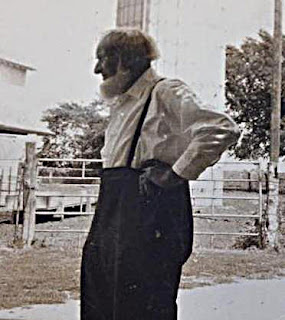In some Bible passages, the writer used certain phrases repeatedly. Psalm 119, for example, is the longest chapter in the Bible. The writer referred to God’s Word, or its 9 synonyms in each of the 176 verses.
My wife is an author, and she says that a good writer usually limits the usage of the same word in each paragraph or literary section. But in Psalm 119 the writer repeatedly used the same nine synonyms for God’s Word, and I think he likely did so to get his point across about how important God’s Word is in our lives, and in the struggles we face.
 Psalm 107 is another Bible passage with repetition. It has four instances of the following phrase, which is the focus of this post. Here it is: “Then they cried out to the Lord in their trouble.” I think again God uses repetition to get His point across. In this case to get His point across to us the importance of crying out to Him when we are in trouble.
Psalm 107 is another Bible passage with repetition. It has four instances of the following phrase, which is the focus of this post. Here it is: “Then they cried out to the Lord in their trouble.” I think again God uses repetition to get His point across. In this case to get His point across to us the importance of crying out to Him when we are in trouble.- Verses 4-5: “Some wandered in the desolate wilderness”, where “they were hungry and thirsty”, and “their spirits failed them.”
- Verses 10-11: “Others sat in darkness and gloom—prisoners in cruel chains—because they rebelled against God’s commands,” and “despised” His counsel.
- Verses 17-18: “Fools suffered affliction because of their rebellious ways”—and they almost died as a result.
- Verses 23-27: “Others went to sea in ships”. The writer wrote that these sailors saw firsthand God’s “wondrous works”, but as is the case of many sailors on an ocean, they will at some point encounter severe storms. He wrote that they “reeled and staggered”, and that “all their skill was useless” to counter the trouble and the sure death they faced.
But in each case, because of His great mercy, God heard their cry to Him in trouble and acted to meet the need they had or to ease the pain they felt.
Following are the four outcomes of the four instances:
- Do you remember the ones living in the wilderness who were hungry, thirsty, and their spirits failed them? “Then they cried out to the Lord in their trouble”—and “He rescued them from their distress. He led them by the right path to go to a city where they could live.” The writer ended by saying the following: "Let them give thanks to the Lord for his faithful love and his wondrous works for all humanity."
- What about the ones who sat in darkness and gloom, who had cruel chains of bondage? “Then they cried out to the Lord in their trouble”—and “He saved them from their distress. He brought them out of darkness and gloom, and broke their chains apart.” The writer ended again by saying the following: "Let them give thanks to the Lord for his faithful love and his wondrous works for all humanity."
- Then there were the fools that suffered affliction because of their rebellion and almost died as a result. “Then they cried out to the Lord in their trouble”—and “He saved them from their distress. He sent His word and healed them, he rescued them from the pit.” The writer ended the third time by saying the following: "Let them give thanks to the Lord for his faithful love and his wondrous works for all humanity."
- Lastly, were the sailors on the troubled seas that even their great sailing skills couldn’t save them from sure death. “Then they cried out to the Lord in their trouble”—and “he brought them out of their distress. He stilled the storm to a whisper, and the waves of the sea were hushed.” Last, but not least, the writer ended by saying the following: "Let them give thanks to the Lord for his faithful love and his wondrous works for all humanity."
Many, many people today don't even realize the serious trouble they're going to face at some point in their lives. Things may be going along smoothly now. But as I tell my son, at some point in all our lives—every one of us—will experience extreme adversity.
It’s difficult to pray for lost people to experience extremely adverse circumstances, sometimes even ones that lead them to the door of death. We don’t want to see anyone suffer.
But sometimes these extremely trying circumstances are what’s needed for a person to—then cry out to the Lord in their trouble—and for God to wonderfully rescue them.

